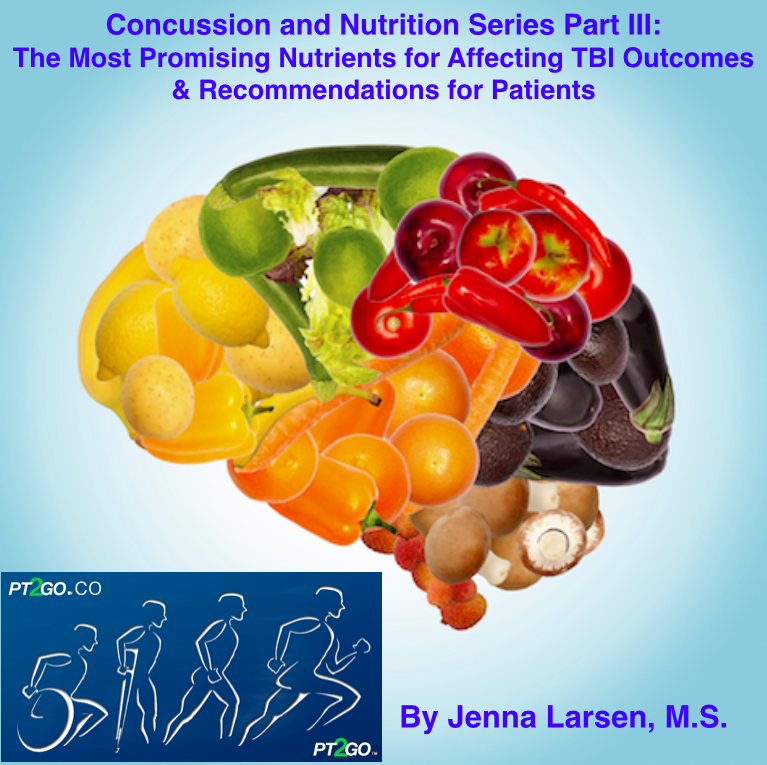Concussion and Nutrition Series Part III:
The Most Promising Nutrients for Affecting TBI Outcomes and Recommendations for Patients
As Traumatic Brain Injuries (TBIs) continue to lead to a third of all injury-related deaths in the United States each year, researchers remain at a loss for a drug to treat them. The fact that brain injuries vary depending upon the location, type, intensity, and duration of force make them difficult to study and an even bigger challenge for the healthcare practitioner making recommendations for appropriate care.
The concept that the brain is an impressionable organ affected by its environment is finally gaining acceptance. Much remains to be discovered, but nutrition as a preventive intervention is a practical and safe proposal. The ability of nutrients to interact with a variety of physiological processes associated with TBI suggests that including nutritional approaches as a complementary therapy when managing a brain injury could be beneficial.
In 2011, the Institute of Medicine (IOM) published a report entitled Nutrition and Traumatic Brain Injury: Improving Acute and Subacute Health Outcomes in Military Personnel. In the report, the committee cites the most promising connections between specific nutrients and TBI. Nutrients are suggested based on the evidence behind their ability to affect physiological processes involved in TBI. Those nutrients deemed most likely to be effective target four main mechanisms- decreasing brain swelling, decreasing inflammation and oxidation, decreasing cell death and increasing energy production.
Choline, creatine*, omega-3 fats, zinc, magnesium and Vitamin D were identified as the most promising nutritional interventions, although more research is warranted. Table 1 below explains their modes of action, foods highest in nutrient density, and an easy way to prepare a dish high in them. I encourage you to share this with your patients and colleagues.
Table 1: Whole Foods and Recipe Preparations Highest in Suggested Nutrients for Adjunctive TBI Therapy
©PT2Go.co 2014
Should TBI patients be supplementing or are food sources better?
There is a double edged sword when conducting studies as supplementation is necessary for researchers to separate the nutrient of interest from the other nutrients in food. However, it can lead the public to assume that supplementation will be effective for their health.
When considering the connection between brain injuries and nutrition, it is helpful to separate acute versus long term symptomatic events. Supplementation may be beneficial to improve treatment outcomes immediately after the injury as a high turnover of nutrients required. However, for those most at risk for traumatic brain injuries (i.e. athletes, motor vehicle accident survivors, etc) and for those that experience long-term symptoms, whole foods such as fruits, vegetables, nuts, fish and legumes may be a better option for acquiring resilience.
We have to also be cognoscente and connected to our patients that have no intention or ability to eat well. A supplement may be indicated, but it should be emphasized that it won’t replace the enhanced benefits they’ll get from whole foods. Our bodies evolved to respond to whole foods and all of the benefits they have to offer- not just one specific nutrient. Prescribing them offers not only fiber, energy, satiety but also the brain-boosting effects of so many other vitamins, minerals and protective substances (see Evidence Behind Flavonoids and Their Role in Anti-Inflammatory Foods) that are missing in a supplement.
*Creatine is created in our bodies and there are few foods that contain it. Therefore, they are not listed on the chart. Supplementation may be beneficial immediately after injury and requires further scientific investigation.
Until next time,
Jenna



